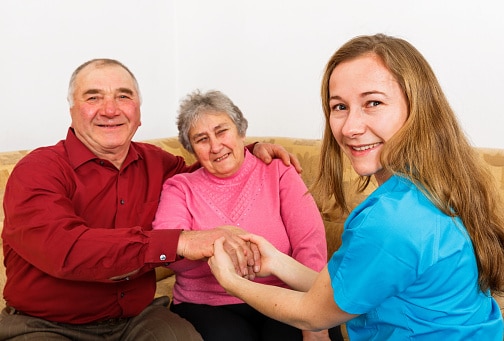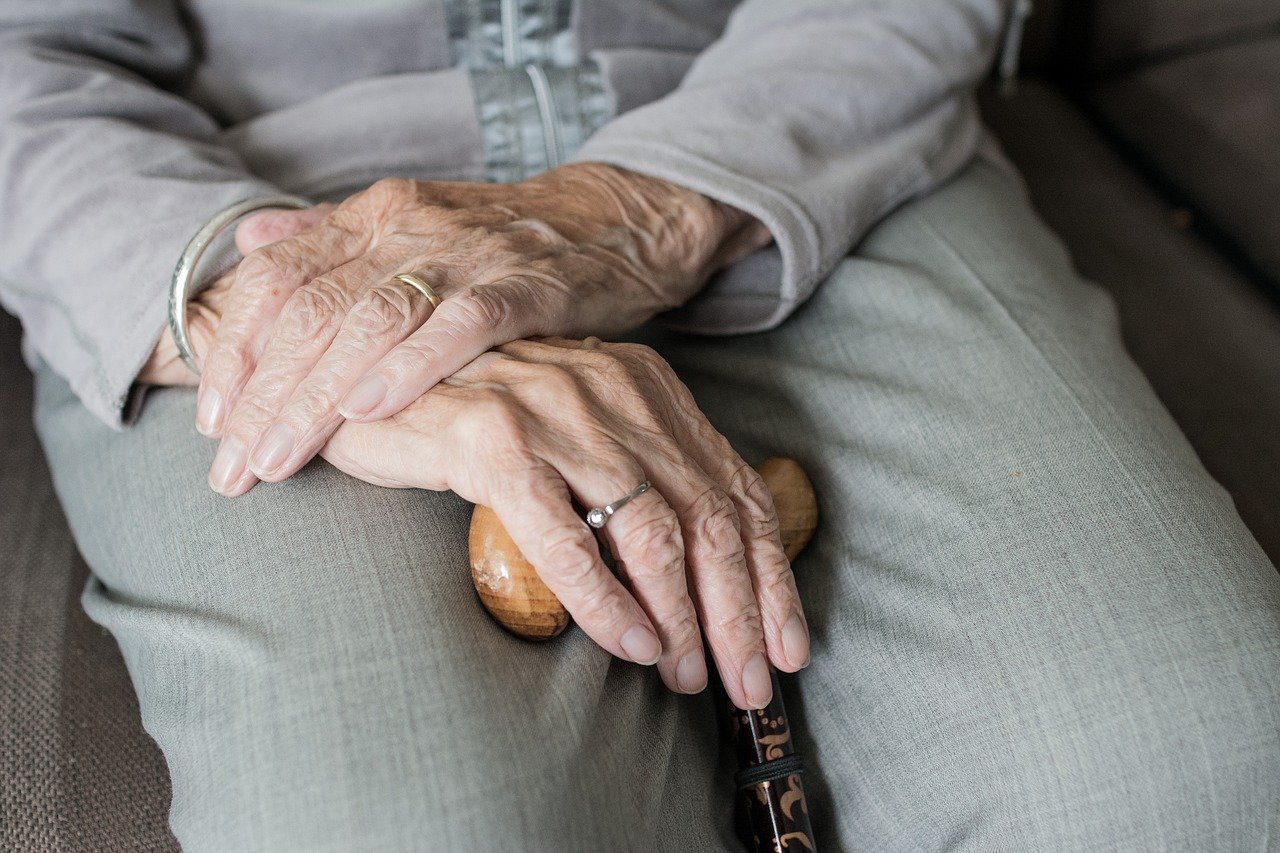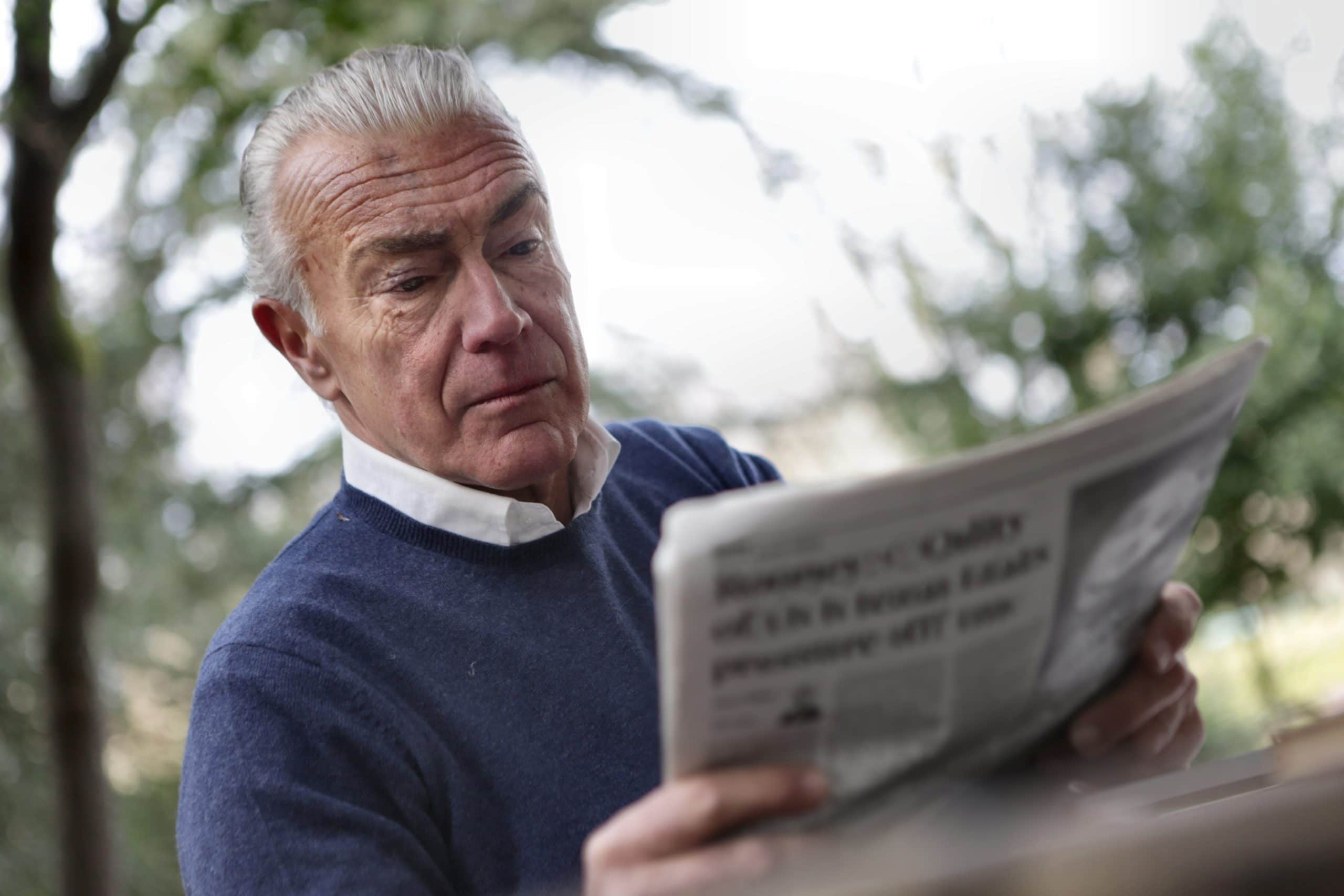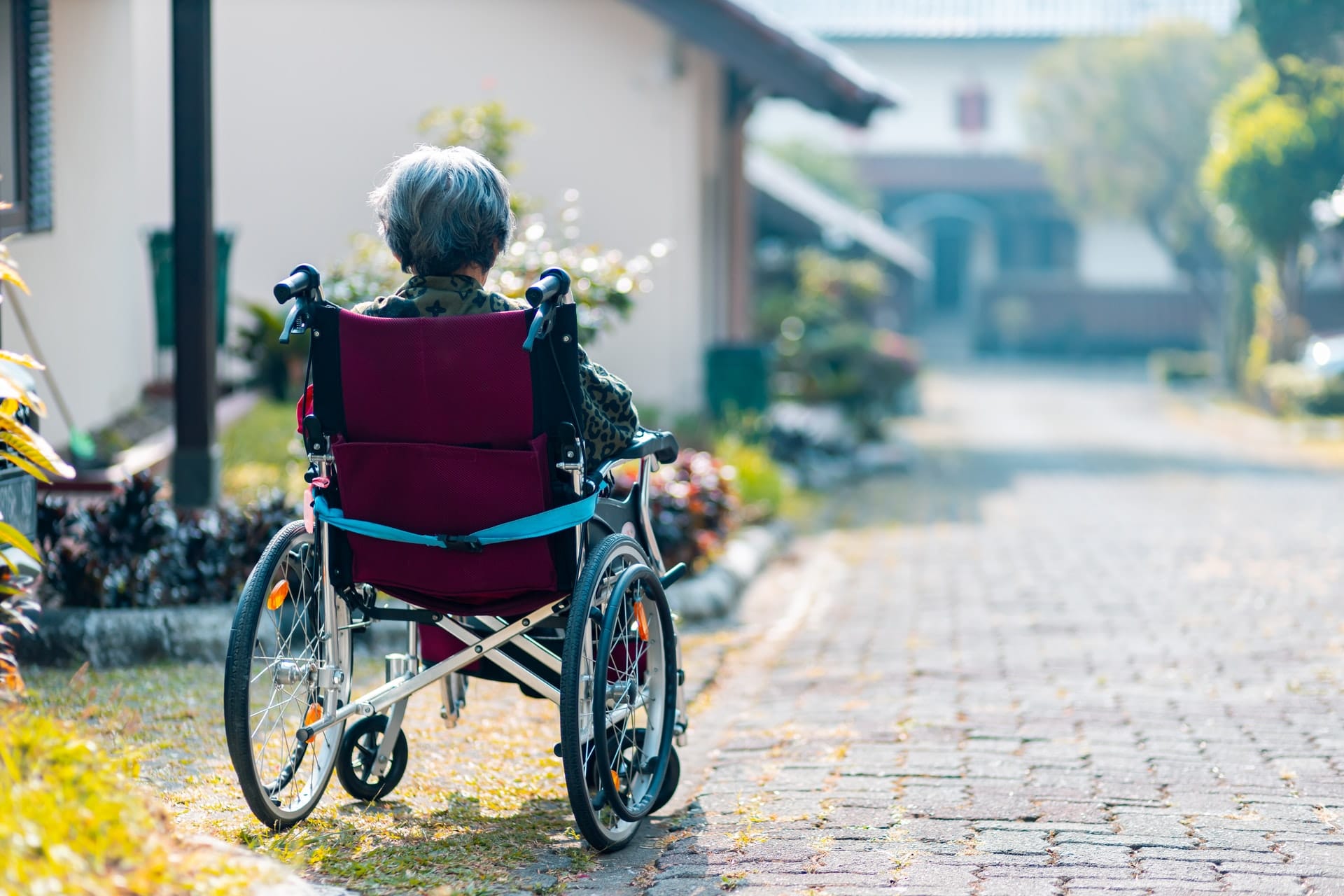
Hallucinations in Seniors
This article has been medically reviewed by Dr. Martin Duggan in 2021.
This content is not intended to be a substitute for professional medical advice, diagnosis, or treatment. Always seek the advice of your physician or another qualified health provider with any questions you may have regarding a medical condition.
Hallucinations in seniors can be a serious problem for caregivers, as they are a symptom of many health problems that disproportionately affect seniors. Alzheimer’s Disease, Fronto-Temporal Dementia, and Parkinson’s Disease can all cause hallucinations.
Hallucinations are sensory experiences that feel completely real, but are produced by the mind. They can be visual (“seeing things”), auditory (“hearing voices”), or even tactile (feeling a bug on our skin).
Hallucinations do not have to be terrifying experiences. There are times when failing eyesight can cause an elderly person to see things that the person knows are not real. This is called Charles Bonnet Syndrome. These hallucinations due to visual changes are not usually distressing for the sufferer.
Yet, hallucinations can often be paired with delusions, which are unshakeable false beliefs that persist regardless of evidence or logic. When dealing with a delusion, it’s common for an individual to react with anger, suspicion, or paranoia if their belief is challenged. Oftentimes, these hallucinations are accompanied by the firm conviction that the hallucinated experience is undeniably real.
Navigating through these complex experiences can be both challenging and disorienting for seniors and their caregivers. Therefore, understanding the root cause and recognizing the onset of such occurrences can be key to managing them effectively.
Common causes of hallucination in the elderly
Anyone having hallucinations should be evaluated by a doctor to determine the cause and provide treatment. Some hallucinations might be due to problems like delirium which is a medical emergency and requires immediate attention. This is why it is vital to reach out to the doctor treating your loved one right away.
So far we have listed the following causes of hallucinations in elderly people:
- Alzheimer’s Disease
- Fronto-Temporal Dementia
- Parkinson’s Disease
- Charles Bonnet Syndrome
- Delirium
Other than these major issues, hallucinations can also be caused by: stroke, dehydration, epilepsy, brain tumors or aneurysms, sleep deprivation, hearing or vision loss, drug or alcohol dependency, liver or kidney failure, or medication.
There are many drugs that may behave differently in older patients with memory problems. We want to stress, however, that no medication should be stopped, changed, or started before conferring with a doctor.
Recognizing hallucinations
In order to successfully deal with hallucinations, caregivers have to notice that there is a problem in the first place.
There are some signs that you should look out for if you are caring for an elderly loved one. Some people will come out and tell someone about their hallucination, but not to everyone. If you think your loved one might be experiencing some type of hallucination, but isn’t telling you about it, there might be some clues.
Before we list these clues, there is one over-arching idea that you can employ. The idea is this: distraction. If someone appears distracted by something – and nothing distracting is happening – then there is a possibility that they may be bothered by something other people cannot see, hear, smell, or touch. Sometimes there is another explanation, but a person should not appear distracted in a quiet, empty room.
Other clues that someone is hallucinating include anxiety, confusion and delusions, speech difficulties, heightened sense of awareness, drastic changes in mood or behavior, withdrawal from friends and family, reduced sense of judgment, insomnia, and mentioning individuals or things that are not there.
If you happen to notice these symptoms, then it is important to reach out to a doctor right away. If the person was behaving normally not long before you notice them hallucinating, then you need to go to the Emergency Room. Sudden changes in someone’s mental status could be a sign of a stroke or delirium from a serious and time-sensitive illness. Time is brain.
Dementia is a leading cause for hallucinations in elderly
A doctor may determine that someone’s hallucinations are due to dementia. Dementia changes the brain and can lead to seeing, hearing, feeling, tasting and even smelling things that are not there. Dementia distorts the brain, which can cause seniors to misinterpret their senses.
When this happens, it is important for caregivers to remember that no matter how fake you believe the visions or voices are, they are very real to the senior. Nothing you say will convince them otherwise. So, make sure that you validate your loved one’s feelings first. You should respond to their complaints as kindly as possible and try to keep their physical safety in mind.
These visions can be especially common in patients with Lewy Body and Parkinson’s dementia. Fortunately, they are not always scary. Sometimes hallucinations will simply include ordinary people, objects or situations. They can even be happy or pleasant.
9 tips for caring for a senior with hallucinations
Once a doctor has determined that your loved one is safe to care for at home, you may have to provide care while that person suffers from intermittent or persistent hallucinations and delusions. If you are caring for someone who is experiencing hallucinations, there are a couple of things you can do when responding.
1. Think about whether or not you need to respond at all
At times, for example, when a senior is having pleasant or happy hallucinations, it may be fine to simply leave them alone so as to not call attention to it. In cases like this, it may be easier and safer to simply accept that hallucinations are a symptom of dementia or aging and leave it be unless they become scary or harmful. However, if the hallucinations are upsetting or making your senior feel unsafe, then it is important to respond with one of the strategies below.
2. Remain calm and do not attempt to convince them that they are wrong
When your elderly loved one tells you that they are seeing or feeling something, they are saying so earnestly, and that hallucination is very real to them. So, make sure that you do not unnerve or contradict them. Contradicting them or arguing will not work and can instead, make the senior feel unsafe because they will realize that you do not believe them.
Instead, approach them calmly and if possible, ask them to tell you exactly what they are hallucinating. If you listen carefully and make out what they are seeing or hearing, you can get a better sense of whether or not the hallucinations are an emergency or not.
3. Tell them you trust that they are not lying
Along with avoiding contradictions or arguments, be careful when you talk to the senior about their experience. Do not dismiss their hallucinations or tell them that they are being silly. Instead, it may be helpful to let them speak with you about what they are experiencing. If you take your senior seriously and validate their concerns, then you will create a more secure environment for them.
Instead of focusing on the senior’s hallucination, maybe you can respond to how they are feeling about it instead. If your loved one is scared, try to make them feel safe. If they are happy, then try to be happy with them. Tell them you understand why they feel scared or worried. Be supportive and ask them how you can help if they come to you for assistance.
4. Make your elderly loved one’s environment feel safer
There are certain objects or aspects of the senior’s environment that can make them have hallucinations. These can include background noises or too much visual stimulation. Removing these types of triggers can help the senior feel safer instantly! You could try turning off the TV or radio, opening the blinds, or removing any mirrors that could be causing fear or confusion.
5. Reassure the senior and simplify their situation
When seniors have hallucinations, they can get very confused and disoriented. This means that trying to explain to them what is happening in a complex way will only make the situation worse. Instead, simplify the way that you speak. Tell the senior not to worry, reassure them that you will protect them and keep them safe. Physical comfort can also be helpful. Hugging your loved one or gently patting their arm or shoulder can reassure them greatly. If your loved one feels that they can speak to you about this issue, it will be a good distraction.
6. Determine if there is a pattern
If you cannot figure out what is triggering your senior’s hallucinations – especially when they are frequent, it may be best to track their behavior and try to determine a pattern. For example, you can keep notes on their routine and see when hallucinations happen throughout the day. Maybe it’s happening after certain meals or physical activity. Maybe they have made some minor change in their routine and it’s disorienting. Either way, keeping notes can help find you a solution.
7. Redirect the senior’s attention
You can also distract your loved one from their hallucination. This can be an effective technique in dealing with the issue. Instead of concentrating on the hallucination or making them talk about it, you can refocus them on another activity. Whether it is watching their favorite movie, reading a book they like, going through old photo albums, eating their favorite meals or taking a walk outside, all that matters is that the senior enjoys it.
8. Ask for support
Caring for someone with a terminal illness or someone who is advanced in age is not easy. So, if we add hallucinations to the burden, it can become overwhelming. This is where having a support system can be extremely helpful, assuring you that you are not alone. Caregiver support groups may be a great option for finding assistance. These groups can be online or in-person and they can provide you with a lot of helpful tips and solidarity.
9. Reach out to a medical professional
If you do not understand why the hallucinations are happening or are afraid that there may be an underlying cause to them that has still not been diagnosed, then it is a good idea to speak with your elderly loved one’s doctor. A medical professional will give you guidance on how to respond and can help you formulate the best strategy for reducing and eliminating hallucinations.
It is especially important to contact your doctor if you believe that the hallucinations are being caused by a new medication your senior is taking. The doctor will want to monitor the side effect or modify the prescription. In addition, if the hallucination is putting the senior in danger, forcing them to behave in a way that may be physically or emotionally harmful for them, the physician may want to introduce approaches that include drug treatment.
Conclusion
In conclusion, hallucinations in seniors can be difficult to navigate, but understanding their possible causes, recognizing symptoms, adapting responses and seeking professional help can make this journey considerably less strenuous for both the elderly and their caregivers. Remember, hallucinations are often related to underlying health conditions, and as such, it’s necessary to engage with a healthcare provider for appropriate diagnosis and management. Equipped with patience, understanding, and the right approach, caregivers can ensure their loved ones feel safe, supported, and loved, enriching their quality of life even amidst experiencing hallucinations.
Sources:
- Hallucinations, Delusions, Paranoia www.nia.nih.gov
- Charles Bonnet syndrome on the NHS website, www.nhs.uk
- Delirium in Older Persons: Evaluation and Management, www.aafp.org
- www.alz.org
- memory.ucsf.edu
Related Articles

When Is It Time for Assisted Living?
Wondering if it is time for assisted living for your loved one is a common question for caregivers. As a caregiver, you might have been considering the question for months or possibly even years. Your loved one might have declined to continue the discussion as the thought of moving out of their family home and […]

All About Adult Day Care: Community and Costs
Adult day care is a fairly new concept for caregivers. The basic idea is to provide a secure place where seniors can enjoy social activities during the day and be provided nursing care as needed. It’s a hybrid model of eldercare that prioritizes community. At the same time, seniors get help with common custodial tasks […]

An Overview of Senior Rehabilitation Centers
Recovering from injury or illness in your golden years may take time and support. That’s where senior rehabilitation centers become essential. If you need a temporary stay to recover from injury or illness, senior rehabilitation centers can be the solution to get expert care and daily support. In this article, we’ll give you an overview […]

A Caregiver’s Guide to ADLs and IADLs
This article has been medically reviewed by Dr. Martin Duggan in 2021. This content is not intended to be a substitute for professional medical advice, diagnosis, or treatment. Always seek the advice of your physician or another qualified health provider with any questions you may have regarding a medical condition. As a family caregiver, your […]

What is a Mechanical Soft Diet? Explanation, Preparation, and Meal Ideas
This article has been medically reviewed by Dr. Martin Duggan in 2021. This content is not intended to be a substitute for professional medical advice, diagnosis, or treatment. Always seek the advice of your physician or another qualified health provider with any questions you may have regarding a medical condition. As a caregiver, you may […]

Benefits for Seniors with Disabilities
Oftentimes, seniors with disabilities qualify for health and financial assistance programs. However, they may be unaware of them or are confused about the eligibility requirements and enrollment process. Let’s go over the key programs for seniors with disabilities so that you have the information you need to get the benefits you deserve. Note on the 3 […]